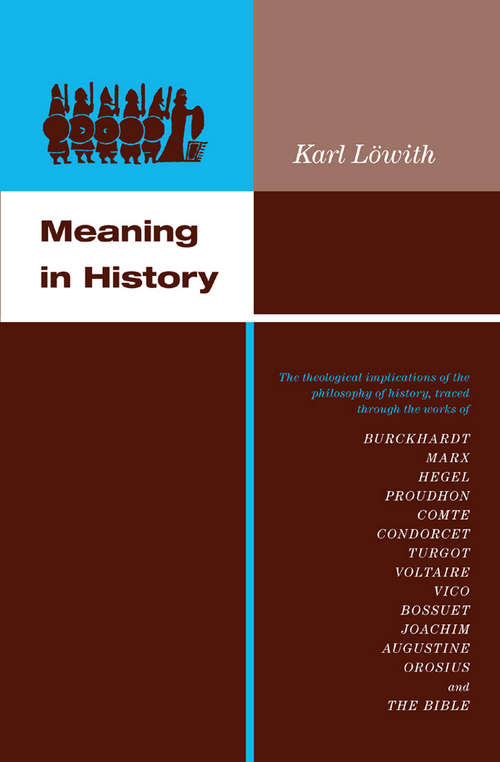Meaning in History: The Theological Implications of the Philosophy of History, Traced through the Works of Burckhardt, Marx, Hegel, Proudhon, Comte, Condorcet, Turgot, Voltaire, Vico, Bossuet, Joachim, Augustine, Orosius, and The Bible
By:
Sign Up Now!
Already a Member? Log In
You must be logged into Bookshare to access this title.
Learn about membership options,
or view our freely available titles.
- Synopsis
- Modern man sees with one eye of faith and one eye of reason. Consequently, his view of history is confused. For centuries, the history of the Western world has been viewed from the Christian or classical standpoint—from a deep faith in the Kingdom of God or a belief in recurrent and eternal life-cycles. The modern mind, however, is neither Christian nor pagan—and its interpretations of history are Christian in derivation and anti-Christian in result. To develop this theory, Karl Löwith—beginning with the more accessible philosophies of history in the nineteenth and eighteenth centuries and working back to the Bible—analyzes the writings of outstanding historians both in antiquity and in Christian times. "A book of distinction and great importance. . . . The author is a master of philosophical interpretation, and each of his terse and substantial chapters has the balance of a work of art."—Helmut Kuhn, Journal of Philosophy
- Copyright:
- 1949
Book Details
- Book Quality:
- Publisher Quality
- ISBN-13:
- 9780226162294
- Related ISBNs:
- 9780226495538
- Publisher:
- The University of Chicago Press
- Date of Addition:
- 11/08/24
- Copyrighted By:
- The University of Chicago
- Adult content:
- No
- Language:
- English
- Has Image Descriptions:
- No
- Categories:
- Nonfiction, Religion and Spirituality, Philosophy
- Submitted By:
- Bookshare Staff
- Usage Restrictions:
- This is a copyrighted book.
